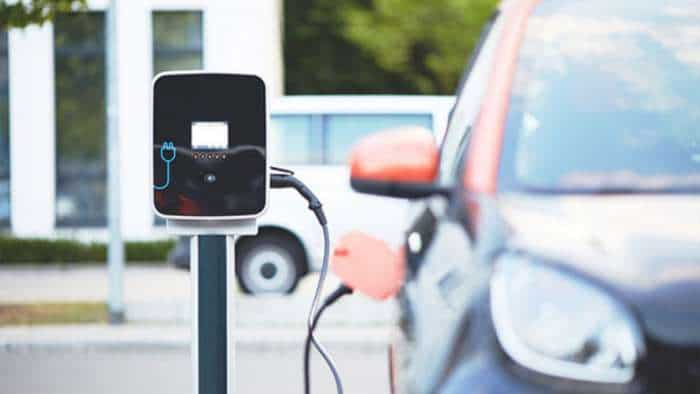Lack of investment, more demand to drive oil price volatility - industry executives
A lack of investment in new oil and gas supplies, amid a shift in focus to cleaner fuels, is likely to drive price volatility in the next decade as demand for traditional energy sources grows, senior industry executives said.

A lack of investment in new oil and gas supplies, amid a shift in focus to cleaner fuels, is likely to drive price volatility in the next decade as demand for traditional energy sources grows, senior industry executives said.
Global energy investment saw its biggest fall on record in 2020 when the COVID-19 pandemic hammered demand, while a push for energy transition to meet greener targets pulled more funds into renewable resources.
See Zee Business Live TV Streaming Below:
The International Energy Agency (IEA) too has called on investors to stop new fossil fuel projects to reach net zero emissions by mid-century, even as industry participants remain split on forecasts for peak oil demand.
Underinvestment in the global oil and gas sector could lead to tighter supplies at a time when demand is set to recover, senior executives at Vitol, Trafigura, Hess Corp and Equinor cautioned.
"It seems likely that rather than falling, global oil demand is set to continue to rise as new markets and consumers emerge," Ben Luckock, co-head of oil trading at Trafigura said at the annual APPEC 2021 conference.
"That raises the prospect of potential cycles of higher prices for traditional forms of energy.
"Whilst that might be beneficial to oil producers in the short term, it also means significant costs to the global economy which is in nobody`s long-term interest," Luckock added.
PRICE SPIKES
A sharp rebound in global demand for energy, power and metals has already led to a supply crunch and a surge in prices.
Gas prices in Europe and Asia are at or near record highs, while those in the United States are at seven-year peaks. Coal prices are at record levels and Brent breached $80 per barrel, highest since 2018.
The Organization of the Petroleum Exporting Countries (OPEC) and its allies still have a cap on oil production, while a lack of investment has limited output from the group`s top two African producers.
But the spare capacity may be challenged next year "if we do not see an accelerated pace of investment in the U.S. sector and ... rapid rapprochement between the U.S. and Iran", Vitol`s Asia CEO Mike Mueller said.
Several executives said investment in fossil fuel sources was needed to avoid shortages and price swings.
"We`re in a period where we have been investing too little coming back from COVID," said Eirik Waerness, Equinor`s senior vice president and chief economist.
"That is probably exacerbated by a lot of uncertainty regarding what the energy transition will be, so there will be a wait-and-see attitude here in terms of also going into new types of investment in the energy transition."
But it will take a long time before new energy sources can compensate for global demand, he added.
DEMAND OUTLOOK
Executives at the conference said they expect global oil demand to reach pre-pandemic levels by early next year, in line with a bullish forecast from OPEC.
"Depending on where the climate-energy transition goes, there is probably peak demand laying out there somewhere," said Greg Hill, Hess Corp`s president and chief operating officer.
"I think it`s much further out than what a lot of the pundits are thinking right now," he added.
He noted that even in the IEA`s sustainable development scenario, oil and gas account for 46% of the global energy mix in 2040.
"The world needs cheap affordable energy. We want to be in that space," Hill said.
Get Latest Business News, Stock Market Updates and Videos; Check your tax outgo through Income Tax Calculator and save money through our Personal Finance coverage. Check Business Breaking News Live on Zee Business Twitter and Facebook. Subscribe on YouTube.
04:10 PM IST











 Finance Ministry to review efficacy of windfall tax on crude oil and fuel exports
Finance Ministry to review efficacy of windfall tax on crude oil and fuel exports  Central government has tools to deal with volatile crude oil rates, says official
Central government has tools to deal with volatile crude oil rates, says official Windfall tax on crude petroleum slashed to zero
Windfall tax on crude petroleum slashed to zero Govt hikes customs duty on crude, refined sunflower, soybean oil
Govt hikes customs duty on crude, refined sunflower, soybean oil OMC stocks in focus as crude oil falls below $77 per bbl; HPCL hits new all-time high
OMC stocks in focus as crude oil falls below $77 per bbl; HPCL hits new all-time high